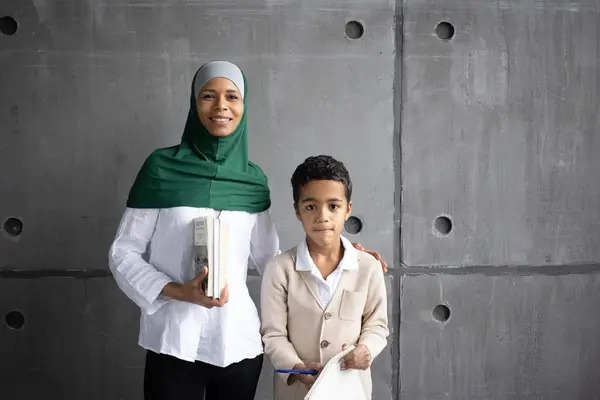
Parenting in Islam: Nurturing the Next Generation Crédit d'image :
Publié le 19 avril 2023, par Samir | 11 h 30 min
Temps de lecture : 4 minutes
As Muslims, we understand that parenting is one of the most important responsibilities we have. Raising a child in accordance with the teachings of Islam is not only an act of worship but also a way to contribute to the betterment of society. The next generation will carry our legacy and shape the future of our ummah. Therefore, it is essential to focus on parenting in Islam to ensure we raise our children as righteous Muslims. Today, we will talk about the importance of parenting in Islam, the role of parents, and the practices that can help us raise our children, according to Sunnah. The Importance of Parenting in IslamIslam places great emphasis on the family as the foundation of society. A righteous family is essential for building a healthy community. Allah says in the Quran: « And of His signs is that He created for you from yourselves mates that you may find tranquility in them; He placed between you affection and mercy. Indeed, in that are signs for a people who give thought. » [Quran 30:21] In this verse, Allah reminds us of the importance of marriage and family. The relationship between spouses is based on love, mercy, and compassion. They are meant to find tranquility and peace in each other. Children are the fruit of this relationship, and parents have a great responsibility to raise them as righteous Muslims. The Prophet Muhammad (peace be upon him) also emphasized the importance of family when he said: « The best of you is the one who is best to his family, and I am the best of you to my family. » [Tirmidhi] The Role of Parents in IslamParents play a crucial role in shaping the character of their children. They are responsible for providing their children with a nurturing and safe environment that promotes the teachings of Islam. The Prophet Muhammad (peace be upon him) said: « Every one of your (people) is responsible, and everyone is responsible for whatever falls under his responsibility. A man is like a shepherd of his own family, and he is responsible for them. » [Bukhari and Muslim] In this hadith, the Prophet (peace be upon him) reminds us that parents are responsible for their children. As a shepherd is responsible for his flock, parents are responsible for guiding, teaching, and nurturing their children. They should strive to be good role models, teaching their children through their actions and words. Practices to Help Raise Children in IslamAs parents, we need to implement practices in our daily lives that will help our children grow as righteous Muslims. Here are some practices that can help:
« Whoever does not show mercy to our young ones or acknowledge the rights of our elders is not one of us. » [Tirmidhi] This hadith emphasizes the importance of showing mercy to children and acknowledging the rights of elders. Parents should instill these values in their children to help them grow as compassionate and respectful Muslims.
« Whoever relieves a Muslim of a burden from the burdens of the world, Allah will relieve him of a burden from the burdens on the Day of Judgment. » [Muslim] Encouraging children to perform good deeds will benefit not only them in this life but also in the hereafter. Parents should teach their children the importance of helping others, being charitable, and being kind.
« The most beloved of deeds to Allah are the most consistent of them, even if they are little. » [Bukhari and Muslim] Consistency is key when it comes to parenting. Parents should be consistent in setting boundaries and enforcing them. ConclusionParenting in Islam is an essential aspect of raising the next generation of Muslims. It is a great responsibility that requires dedication, patience, and compassion. Parents are responsible for guiding, teaching, and nurturing their children in accordance with the teachings of Islam. They should strive to be good role models, teach Islamic values, offer salah and dhikr, recite the Quran, encourage good deeds, and set boundaries. By following these practices, we can raise our children as righteous Muslims who will carry our legacy and contribute to the betterment of society. As Allah says in the Quran: “O you who have believed, protect yourselves and your families from a Fire whose fuel is people and stones…” [Quran 66:6] May Allah guide us all to raise our children as righteous Muslims and protect them from the Fire. Ameen. |
jeu. 10 Sha'bane
الخميس 10 شعبان |
| Contact | Mentions légales | A propos | Ressources | Blog | Glossaire | Questions réponses sur l'islam |
| Devenir musulman - Islam et terrorisme - Se convertir à l'islam - Prénom musulman - Roqya |
| English : al hamdulillah | Arabic : الحمد الله al-hamdoulillah.com © 2026 |